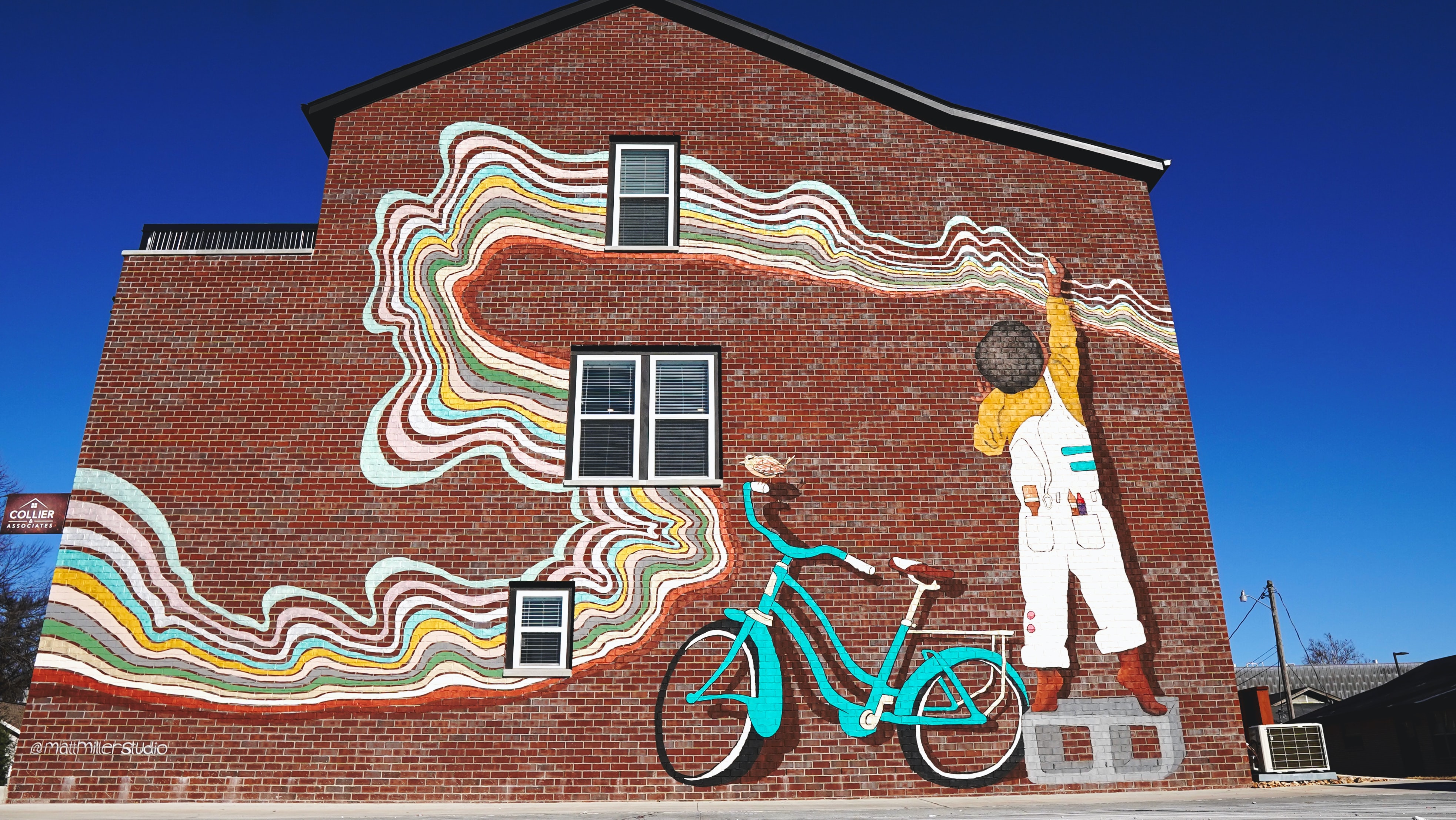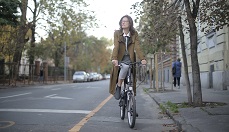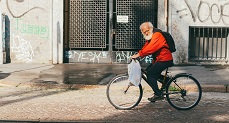
Cycling Diversity Series - Make cycling rise for all a reality!
Cycling has been a symbol of emancipation and empowerment at many times during our history, but have we come as far as we would like to?[i] When given a closer look, the main profile of cyclists is far from being diverse. So does cycling really shine for all of us? What are the current gaps and issues our societies are facing? This introductive article of the ‘Cycling Diversity Series’ will help shed some light on this.
Similarly to Buddhism, four great truths lay as the foundation of cycling inclusivity:
- The greatest share of the global cycling population falls into low income categories.
- The fastest growth in cycling often happens among minority groups (especially in the U.S.).
- The majority of disabled cyclists find cycling easier than walking.
- The bicycle is (and has always been) an incredible tool for (women’s) emancipation and empowerment.
And yet, these groups tend to be heavily overlooked in the planning of urban infrastructure. This problem is rooted in history. The bicycle’s popularity bloomed in the late nineteenth century, in a context of sexism, racism and classism. It was revamped in the 1970s, with the rise of the first ecological movements and the political concerns about the car industry. But diversity was never put at the forefront of bicycle planning and advocacy. As a result, cycling rose, but not everywhere and not for all.
The need to think about #CyclingForAll
Extensive research shows that for people to embrace cycling, they need to feel safe, welcomed and considered in the street. In this introduction to the topic, let us start by looking at the main differences that impact cycling experiences.
 Globally, men are more likely than women to cycle for their daily commute[ii]. In 2018, 38% of cycle trips in Bordeaux[iii] (France) were made by women during the day, and only 22% during the night and on rainy days. Perceived safety differs with gender, personal history and uses of the street. Factors such as carrying grocery shopping, driving kids, and insecurity at night all have an impact on their practice of the bicycle.
Globally, men are more likely than women to cycle for their daily commute[ii]. In 2018, 38% of cycle trips in Bordeaux[iii] (France) were made by women during the day, and only 22% during the night and on rainy days. Perceived safety differs with gender, personal history and uses of the street. Factors such as carrying grocery shopping, driving kids, and insecurity at night all have an impact on their practice of the bicycle.
 The inequalities encountered by different ethnic groups depend a lot from the cultural and historical context. Only 15% of cycle trips in London were made by black and minority ethnic individuals, according to the 2017 Transport for London report[iv]. More alarmingly, a study in Oakland (California), where 28% of the population is black, showed that 60% of the cyclists pulled over by the police were black[v].
The inequalities encountered by different ethnic groups depend a lot from the cultural and historical context. Only 15% of cycle trips in London were made by black and minority ethnic individuals, according to the 2017 Transport for London report[iv]. More alarmingly, a study in Oakland (California), where 28% of the population is black, showed that 60% of the cyclists pulled over by the police were black[v].
 Urban investments are generally focused on city centers, as they are more politically appealing than the peripheries. While we always welcome improvements in infrastructure, this should not contribute to isolating poorer and decentered neighborhoods, where people who are more in need of access to a cheap form of mobility tend to reside.
Urban investments are generally focused on city centers, as they are more politically appealing than the peripheries. While we always welcome improvements in infrastructure, this should not contribute to isolating poorer and decentered neighborhoods, where people who are more in need of access to a cheap form of mobility tend to reside.
 Finally, disabled cyclists are an often forgotten group - and yet 66% of disabled people in London are able to ride a bicycle, according to Wheels for Wellbeing. Their research shows that disabled people do not cycle much for three main reasons: inaccessible infrastructure, prohibitive cost of mobility equipment, and non-legal recognition for cycles a mobility aid.
Finally, disabled cyclists are an often forgotten group - and yet 66% of disabled people in London are able to ride a bicycle, according to Wheels for Wellbeing. Their research shows that disabled people do not cycle much for three main reasons: inaccessible infrastructure, prohibitive cost of mobility equipment, and non-legal recognition for cycles a mobility aid.
While it is important to be aware of these issues and of the political and historical dynamics coming into play, there are also many reasons to rejoice. Interest in the bicycle is booming this year with more than 2,000km of new cycling measures announced and over one billion euros allocated for cycling promotion since the start of the COVID-19 pandemic[vi]. The topic of inclusion is also gaining a lot of traction following the #MeToo and #BlackLivesMatter movements. In the next articles of the Cycling Diversity series, we will keep exploring these issues and we will present some of the great initiatives that are being established to tackle inequities in cycling planning, advocacy, and policy.
Cycle Diversity is also the main topic of the next Velo-city conference due to take place in Lisbon from 1-4 June 2021. Continue exploring cycling diversity here.
Topics:
Contact the author
Recent news!
Upcoming events
Contact Us
Avenue des Arts, 7-8
Postal address: Rue de la Charité, 22
1210 Brussels, Belgium









